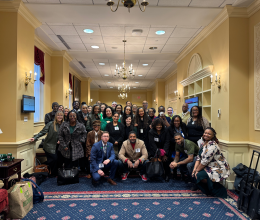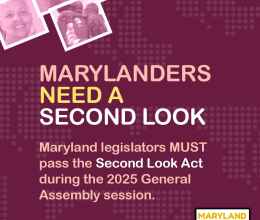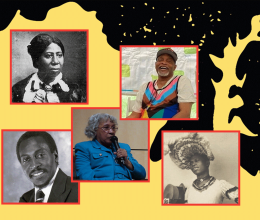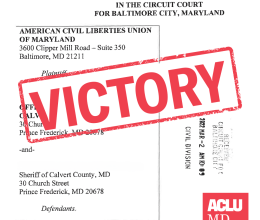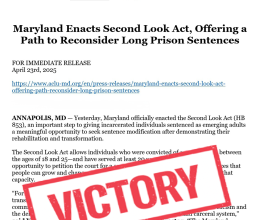
Demands for PAB membership criteria include youth and City residents regardless of immigration status or previous encounters with the criminal justice system.
Baltimore, MD – The Campaign for Justice, Safety, and Jobs (CJSJ) and the Maryland Coalition for Justice and Police Accountability (MCJPA) issued a letter outlining concerns about Baltimore City’s proposal for the creation of a Police Accountability Board (PAB), including a lack of representation, independent legal counsel, and inclusion of those with a conflict of interest. The community led coalitions call on the City Council to incorporate amendments to widen participation on the PAB to include city residents regardless of immigration status or previous encounters with the criminal legal system, among other demands.
For the last several months, the Baltimore City Council has actively opposed real police accountability efforts – undermining the Civilian Review Board’s leadership and resisting efforts to grant the PAB’s additional powers to the CRB. The CRB also has crucial independent investigatory and subpoena powers that should be retained.
The letter reads, “This past General Assembly session, CJSJ and MCJPA uplifted Baltimore City residents’ voices while working alongside members of the Civilian Review Board (CRB) to add the powers granted to police accountability boards by The Maryland Police Accountability Act of 2021 to the existing CRB. Unfortunately the bill did not move forward… The July 1st deadline to establish a police accountability board should not be an excuse to minimize community input and weaken the civilian oversight of police in our city… We are now seeing a rushed process take place to create a PAB, with limited opportunity for community engagement.”
The coalitions’ full letter, available here, outlines the following demands:
Ensure PAB membership is representative:
- It is clear that the draft bill intends to ensure police district representation and the participation of critical community organizations, however, we believe it is essential for each council member to make recommendations on representatives for the PAB as well.
The Police Accountability Board Chair:
The PAB chair should be elected solely by the PAB membership itself as has been done in other jurisdictions.
Membership Criteria:
- In terms of membership criteria, the emphasis should be on requiring members to be able to demonstrate, through professional or lived experience, the ability to balance effective oversight, perform objective analysis of an investigation report, and practice procedural fairness.
- We take particular issue with the requirements that PAB members be legal residents or citizens, and the disqualification of those who have served time for prior convictions. Police officers are responsible for serving ALL residents in the community, regardless of their immigration status or previous encounters with the criminal justice system. These restrictions hinder, rather than promote, public safety. The PAB, which is meant to provide a form of institutional accountability to the public, should be truly representative of the public.
- Similarly, youth interactions with the police are significant. The requirement that members be at least 21 years old is unnecessary if they meet the broader qualifications. We would suggest the age restriction be lowered to at least 18 years of age, if not 16.
- It is antithetical to the principle of community oversight to allow former law enforcement officers and family members of law enforcement officers to serve on the PAB. They should be excluded from PAB membership.
Remove language related to the Administrative Charging Committee:
- The membership and structure is already described within HB 670 and is unnecessary.
Ensure Public access to the PAB’s recommendations:
- While the PAB is charged with sharing its findings and recommendations with the Mayor and Council, transparency requires that its recommendations also be made available to the broader public, once finalized. This could be done either through an annual report or quarterly summaries of finalized investigations made available online.
Compensation for board members should be considered:
- The board is required to meet at least quarterly and will likely need to meet more often to ensure that they can follow through on their mandate. Board members will also likely need to meet even more frequently, at least monthly, to consult with the Baltimore Police Department (BPD) and city officials. Without compensation, only those with the financial means to give their time will be able to participate. This excludes much of Baltimore’s populace who live paycheck to paycheck and often work multiple jobs.
PAB must have independent legal counsel:
To avoid the conflict of interest that hampered the CRB’s ability to achieve transparency and demand full accountability, the PAB must have independent counsel. An effective oversight board simply cannot be represented by the same counsel that represents the Baltimore Police Department (BPD).
###
The Baltimore based Campaign for Justice, Safety, and Jobs (CJSJ) is a diverse group of community, faith instructions, policy advocates, civil rights, and local grassroots organizations who have come together to raise our voices in a call for Justice, Safety, and Jobs. The group convened in April of 2015 in the wake of Freddie Gray’s murder at the hands of Baltimore Police officers to address the systemic issues that were unearthed in Freddie Gray’s death and the subsequent uprising throughout the city. To date, the campaign includes dozens of powerful organizations representing thousands of Marylanders from Baltimore fighting for Police accountability and Reform. The Maryland Coalition for Justice and Police Accountability is an alliance of over 100 organizations statewide who are seeking police accountability through legislative change.
